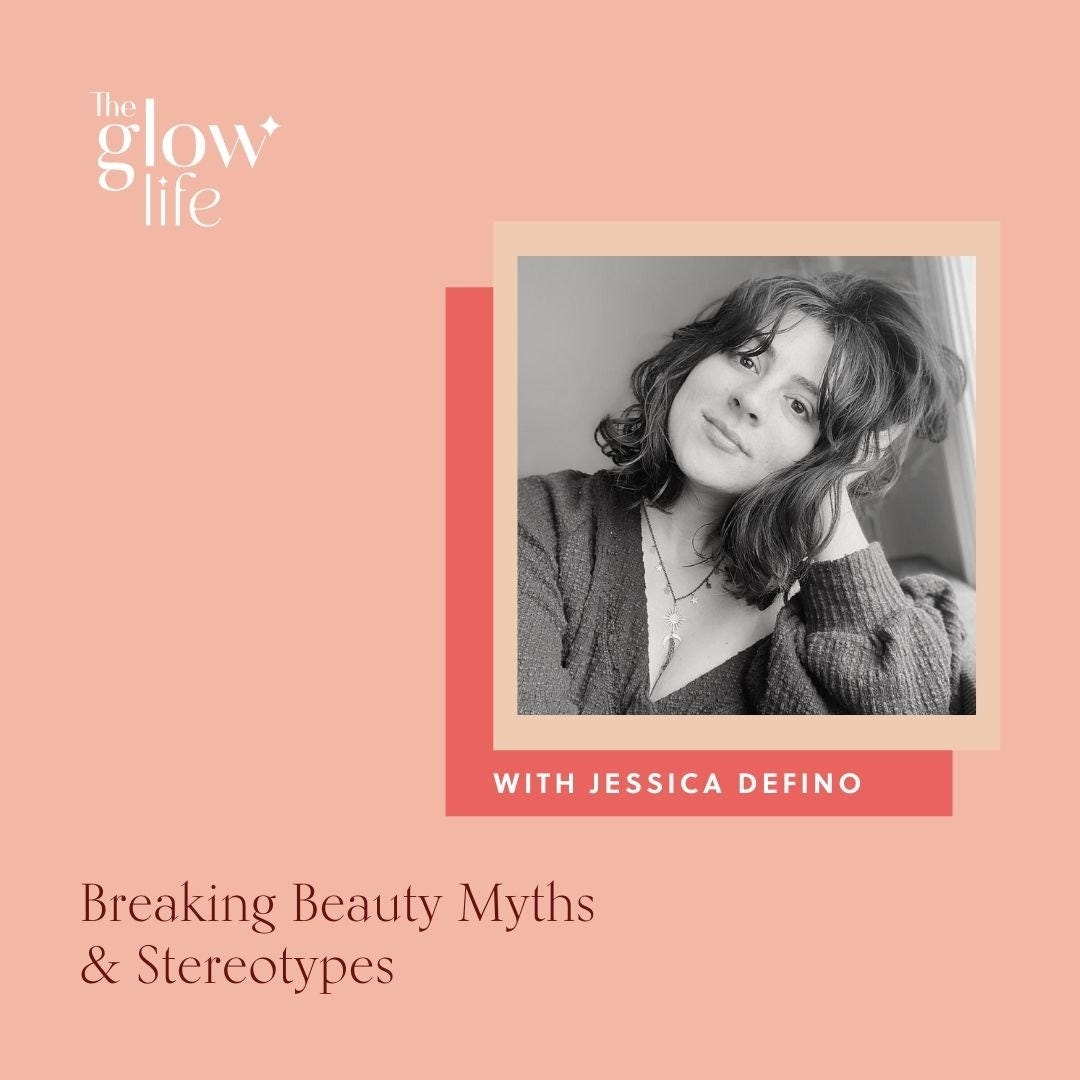In podcasting news: I was a guest on The Glow Life with Maria Marlowe! The episode title is “Breaking Beauty Myths & Stereotypes” but really, Maria and I covered everything from my time working for the Kardashians (I’m sorry) to the inner workings of Web-based beauty media (it’s honestly sad). Listen to it here.
One particularly exciting thing about this podcast: Maria published a transcript of our entire conversation on her site! So if you’re “not really a podcast person,” you can read that instead.
Here are (I think) some of the episode’s more ~intriguing~ snippets:
On “slugging”:
The number one [concerning beauty trend] that comes to mind is this trend of slugging, which is basically smearing Vaseline on top of your face as the last step in your skincare routine. It’s supposed to make you look really shiny and glowy and seal in all of your skincare products, blah blah blah. That really concerns me because petroleum jelly is, obviously, petroleum. It’s a fossil fuel derivative. It’s purified, so it’s not necessarily that it’s unsafe for your skin, but I think it’s really dangerous as an industry, as influencers, as journalists to be promoting fossil fuels as the number one beauty product right now. Fossil fuels are destroying the environment. They are contributing to climate change more than anything else. Besides the ethical environmental dilemmas there, if you want to look at it from a purely superficial perspective, environmental damage is the number one problem that our skin is facing today! I don’t know, using fossil fuels in your beauty routine is so backwards to me.
(For further reporting on fossil fuel byproducts like petroleum and mineral oil, check out this piece from Salon.com. Basically: As oil consumption drops due to clean energy efforts, petrochemical production is actually ramping up, effectively negating the environmental gains of divesting from fossil fuels. We cannot divest from oil alone and expect change — we specifically and deliberately need to divest from petrochemicals as well. Big Beauty is a huge financial supporter of petrochemical production and must be a target for anti-fossil fuel action.)
On (not) divesting from beauty standards:
A lot of our beauty behaviors evolve as emotional coping mechanisms [for dealing with the pressure of beauty culture]. To take away somebody’s emotional coping mechanisms all at once is not healthy or productive, so I think it’s important to be gentle with ourselves and say, ‘No, I actually really can’t stop doing that right now because I haven’t worked through my issues with aging and death and how society treats aging women’ or whatever.
On the myth of confidence-in-a-cream:
Part of the conditioning we get is being told that when we adhere to these standards — the younger we look, the glassier here we look, the more perfect that we look — we’ll be happier, we’ll be more confident. And I think the most effective way to break that conditioning and get out of that cycle is to understand that it’s not necessarily confidence that we get from this focus on beauty. Studies show that this intense focus on our physical aesthetic increases anxiety. It increases depression. It leads to eating disorders. It leads to body dysmorphia. It is implicated in self-harm and even in suicide. So we’re taught that these things are going to make us confident, these things are going to make us happy — but actually, more often they are contributing to these negative mental states.
On supporting your skin barrier:
Overall, if you want to support your skin barrier topically, the best thing that you can do is research what your skin barrier actually does and what components actually belong on the skin’s surface, and then you can mimic that with topical products and help your skin heal in a way that it can recognize. For instance, ceramides are something that your skin produces naturally, and they’re in a lot of skincare barrier repair creams. Now those are a great thing to have on the surface of your skin. Omega-3 and Omega-6 fatty acids — those are on the surface of your skin, they’re part of your skin barrier. They’re available in a lot of plant-based facial oils, and those are great to have on the surface of your skin if and when it needs help healing and protecting. Something like hyaluronic acid does not belong on the surface of your skin. So if that’s in a barrier repair cream, beware.
On the difference between aesthetic and functioning:
One of the largest challenges in this space is really educating people and letting them know that what might look “good” may not actually be beneficial to the health of your skin in the long term. I think that’s a really hard concept for people to internalize.
On internet beauty content:
Working within the beauty media helped me understand why there’s so much misinformation and why so many articles are basically just copy-and-pasted press releases. The way the media is set up is not conducive to thoroughly researched, investigated, and fact-checked information. For example, when I was a staff reporter, I was responsible for writing two to three stories a day. My shift would be six hours long, and within that time I would have to come up with the ideas, pitch them to my editor, research the story, do the interviews, write the story, fact-check everything, source images, create product shopping carousels, and publish it. So I mean, it’s impossible to do good work within those parameters.





I doubt I'll ever get tired of saying this about your work: Brilliant. xo
I love your work! Just curious. What do you think of Charlotte Palermino? She heavily promotes slugging and posted a very defensive tik tok the other day. Wonder if she reads your work!